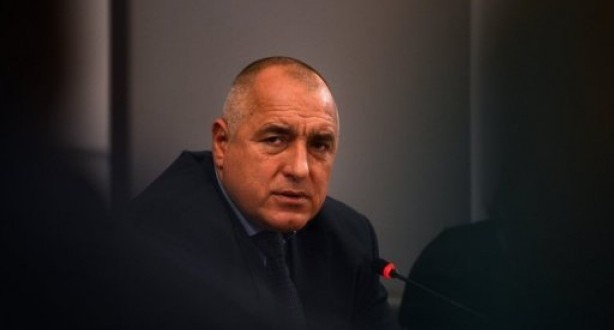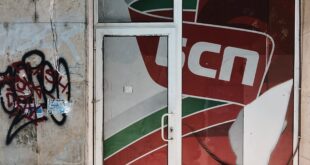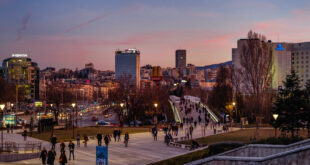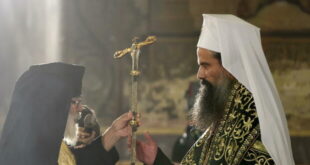Bulgarian prime minister, Boyko Borisov, has announced his resignation on February 20. And he has also announced, in front of the Parliament, that his right-wing GERB party won’t take part in the formation of the caretaker government bridging Bulgaria towards snap elections. Borisov has declared: “I don’t want to rule a country in which police has to beat demonstrators. We received the power from the people, and today we give it back to the people”.
Borisov refers to the rallies taking place in the country, culminated in the riots on the evening of February 19. According to Francesco Martino, news correspondent from Bulgaria for Osservatorio Balcani e Caucaso, “a small group of young people has attacked the riot police throwing stones, bottles and firecrackers. The police reacted with a charge, crushing the protestors behind the group of violents, too. Many media’s TV cameras on the place have shown bloody faces and demonstrators on the ground being arrested. The final count of the riots is of 14 people wounded and 25 arrested”.
Those too expensive bills
Protests, driven by a rise in energy costs, had soon resulted in open discontent, and demonstrators started gathering on Eagle’s Bridge (Orlov Most) in Sofia, a place from which unauthorized marches began, becoming increasingly violent. Mass rallies have taken place in all major Bulgarian cities, and the one on Sunday 19th February has been perhaps the most important in the last fifteen years. At the origin, as said, there’s the problem of expensive energy. Electricity bills in January have doubled their price compared to 2012. The first responsibles are distribution companies (the Czech CEZ and Energo-Pro, and the Austrian EVN) which operate in Bulgaria since 2004, after a privatization process that led de facto to a cartel.
Borisov initially tried to calm down the protests firing the Finance minister, Simeon Dyankov, and paying (overdue) subsidies to farmers, but with no results. It was also vain to promise to intervene on energy costs. Bulgarian citizens demanded the return to nationalization of the electricity-providing system, shouting “mafia” and “resignation” towards the government.
Borisov, electricity companies and organized crime
“Mafia” is not a random word in this story. Certainly not if we find out that in CZE’s managing board sits Dimitar Nikolov Stefanov aka Mitko the Karate Man, Boyko Borisov’s trusted man, who works for the Czech company since 2009. Mitko “Karate” earns a fortune, 35.000 Bulgarian Levs per month, ca. 17.000 Euros compared to an average wage that in Bulgaria is the lowest in the European Union, barely 400 Euros per month. But more than the salary, what’s interesting about Mitko “Karate” is his “friendship” with another influential gentleman: Rumen Nikolov aka “the Pasha”, representative of the Sik, one of the two major criminal organizations present in Bulgaria in the ’90s. Mitko “Karate” Stefanov was Rumen Nikolov’s driver and trusted man; prime minister Borisov, as himself admitted, is “friend”, too, with the boss Rumen “Pasha”. Quite a nice picture, indeed.
Borisov’s shady past
The less experienced reader should know that these organizations were born during the first years of post-communist transition, and enriched themselves through the privatization of strategic sectors of the state. Only the criminal organizations had the money and the income needed to acquire such goods, money that originated from traffics and the security racket: many “insurance companies” flourished during those years, offering protection for money. This way, former secret services agents, traffickers and crime lords, entered a Mafia Commission that soon climbed up to power. There are suspects that even premier Borisov is an exponent of these “interests”. It’s not a secret that Borisov was the bodyguard of the then president Zivkov and that he was the founder of one of the first “insurance companies” in the country. He is considered to be dangerously close to the milieu of the Bulgarian mafia even by the United States’ Congress.
Code-name “Buddha”
Not only, the links between Bosrisov and the mafia are at the core of recent scandals in Bulgaria. The website BalkanLeaks has obtained and published a confidential document out of which it’s clear that Borisov, in 1996, was enlisted by Csbop, the Bulgarian services for combatting organized crime, as an informer. His code-name was “Buddha”. It turns out that in 1997 Borisov was put under investigation by the Csbop itself, due to his “previous criminal tendencies”. The Buddha affaire coincided with these days’ street demonstrations and has pushed Borisov to resign, a quitting that doesn’t certainly mean giving up the power. BalkanLeaks’ scoop was then taken up and spread by the daily Bipol, bringing the tension to the highest levels.
The attempted assassin of “Baretata”
At this point a question comes up spontaneously: why such a powerful man like Borisov, who controls the whole Bulgarian political life (also thanks to his last electoral success), who has trusted men in all major companies, who has links with the organized crime, decided to resign? Here we touch the slipper ground of conjectures. We are unable to give a proper answer. But if the street protests and the “Buddha” scandal are not enough, the last 29th January four bullets hit Zlatomir Ivanov aka “Baretata” in front of the Law Court in Sofia, heavily wounding him. As the Novinite news-agency reported, in the 1991-1993 period “Baretata” was enrolled in the State squad fighting against terrorism, under the Interior Ministry, and from that experience comes his nickname “beret”. “Baretata” was going to the court where he is under trial for having allegedly organized and taken part in the Firmata, a criminal organization specialized in drug traffics and murders on a commission basis. Immediately after the shots a fire started in the building from which they came. The police believes the fire was set on to destroy any possible traces.
The trial to Aleksei Petrov and the underground crime
There’s then another trial, very delicate, that is getting to the heart of the matter in Sofia: the one called Octopus and that sees on the dock Aleksei Petrov, the Mafioso-wrestler (we talked about it here) former advisor for the Secret Services (Dans), a businessman accused of being implied in a thick criminal net, a Bulgarian-style “octopus” about which much is still to be found out. His arrest was a real media event, a show organized by Borisov, at the time very concerned to demonstrate how committed he was in fighting the clans. Petrov, from his side, has always accused Borisov of being himself implied and, commenting on recent scandals, he has declared: “I wouldn’t be surprised if Buddha turns out to be my fellow prisoner soon”.
Maybe in the criminal underground something is happening. Maybe there are concealed powers over Borisov’s own. Maybe, or maybe all of this has nothing to do with what is undergoing in a country subject to – and this is out of question – social, political and criminal tensions, that seem to imply a future full of uncertainties.
 East Journal Quotidiano di politica internazionale
East Journal Quotidiano di politica internazionale




